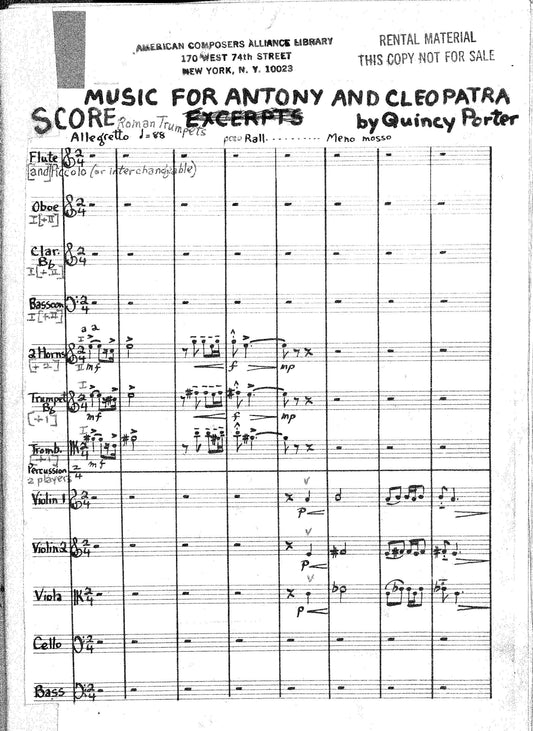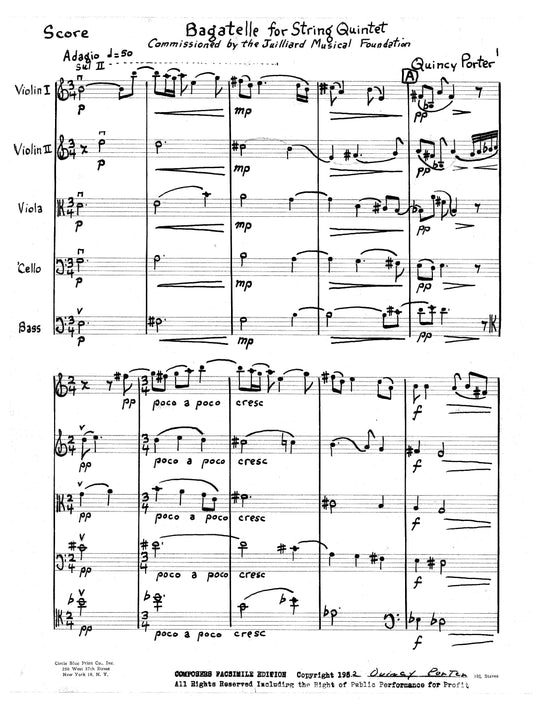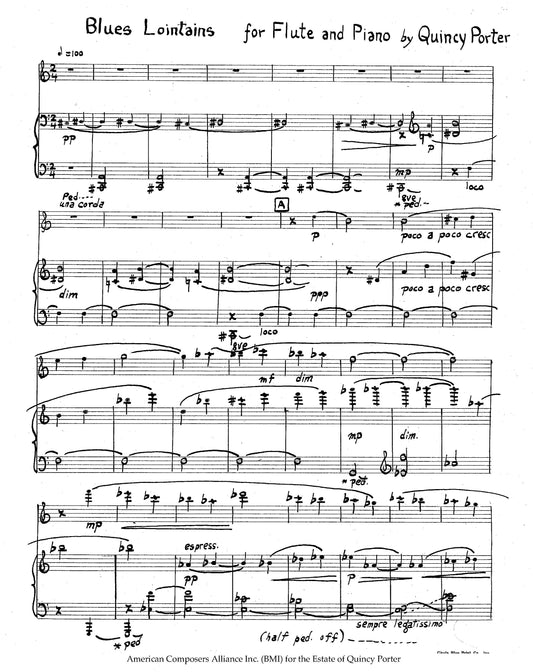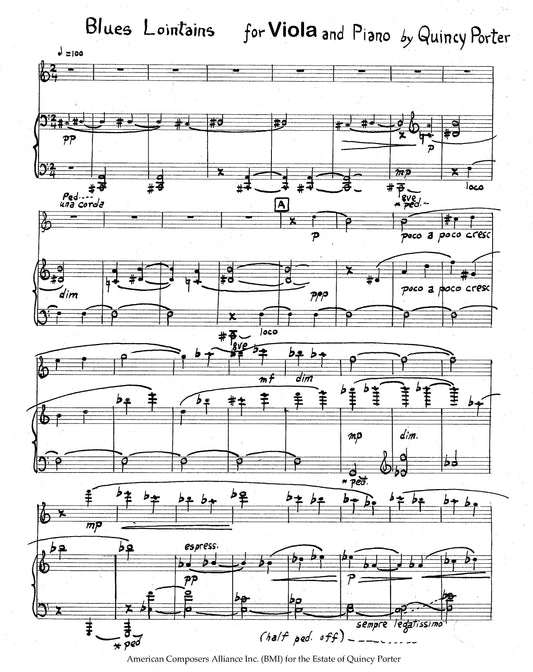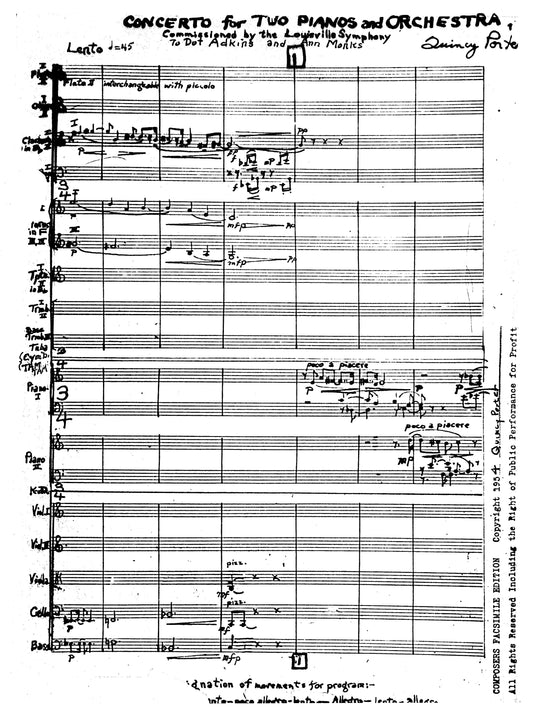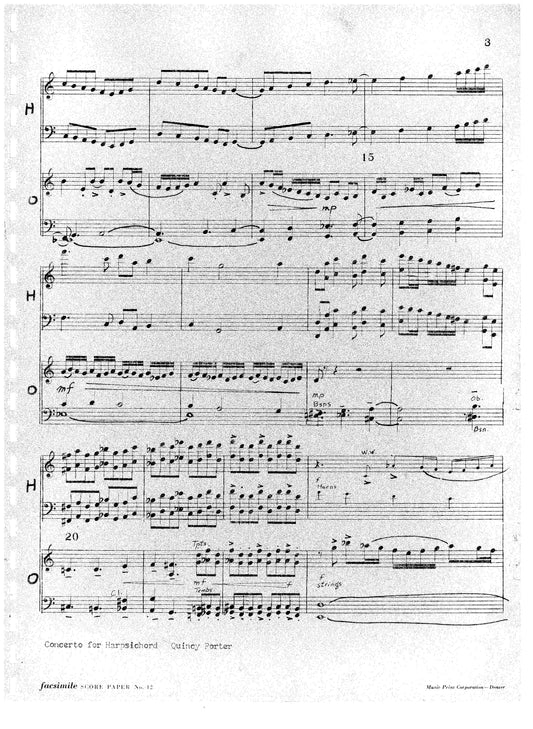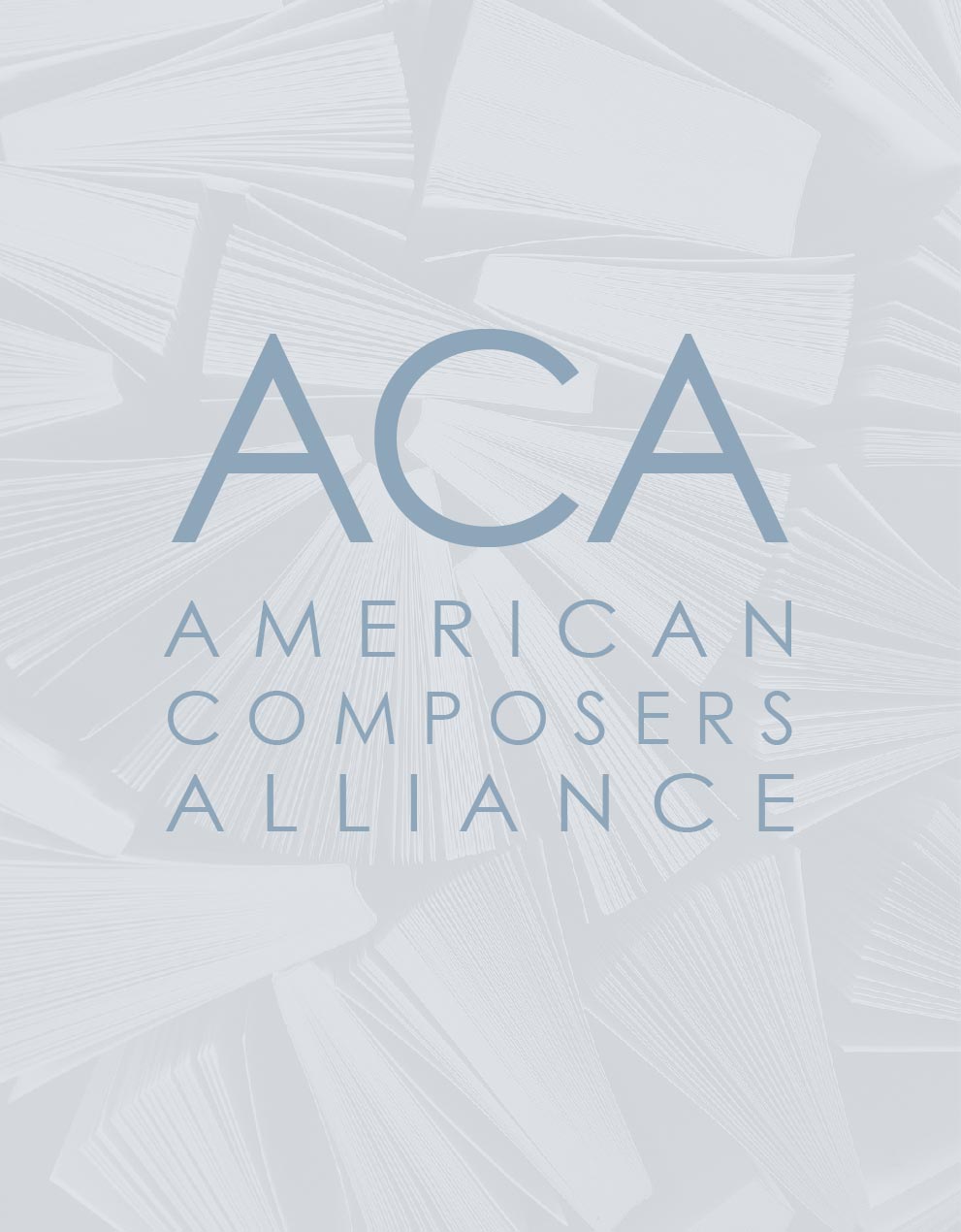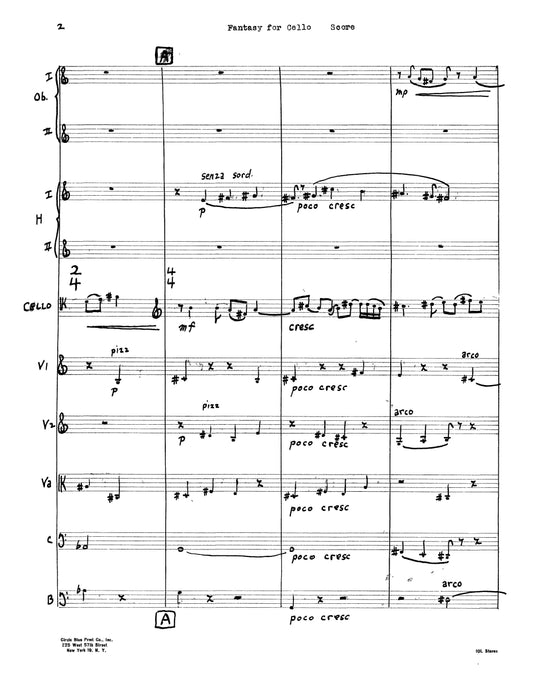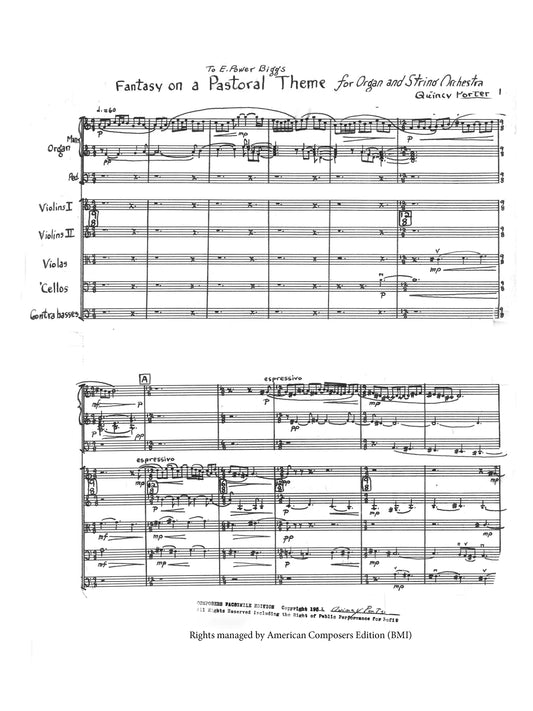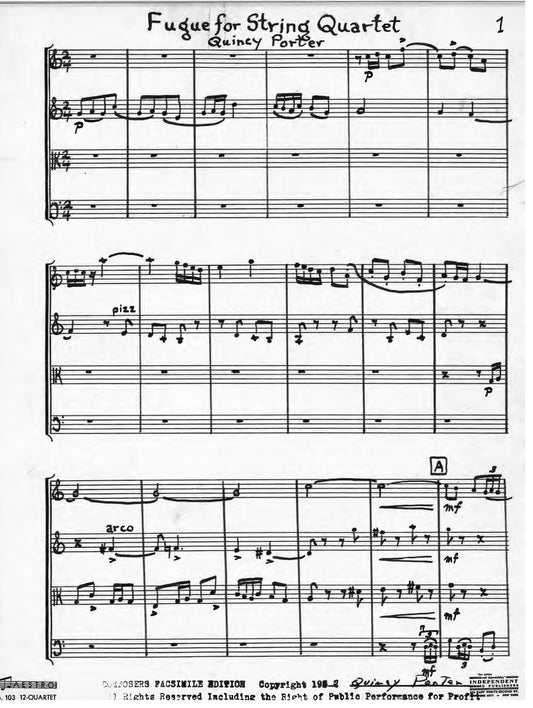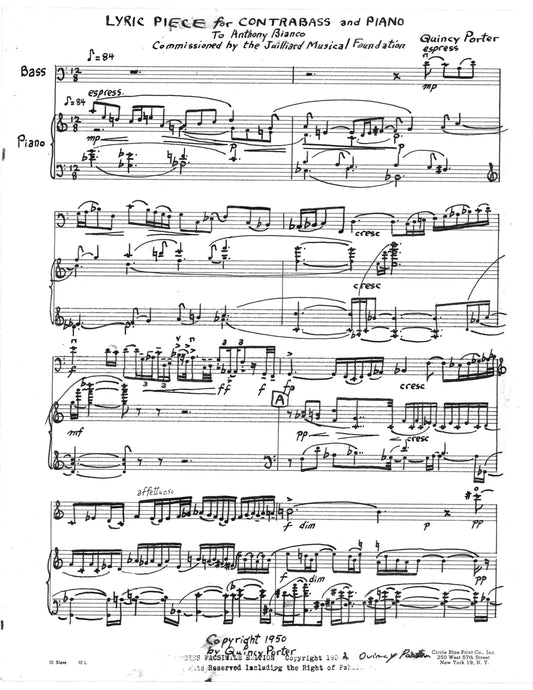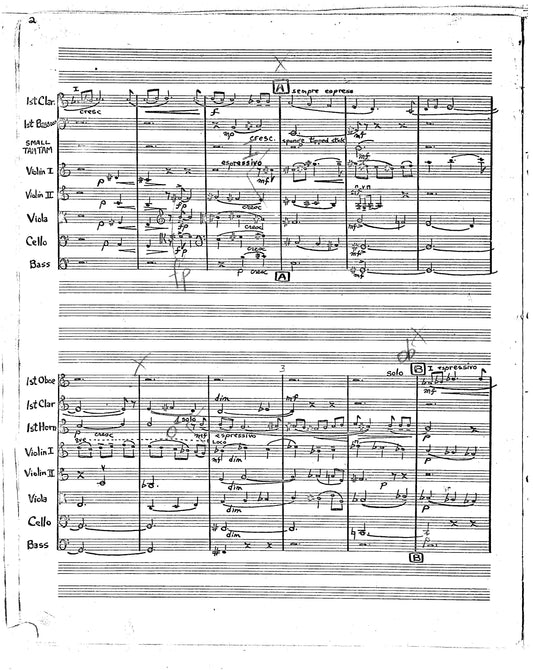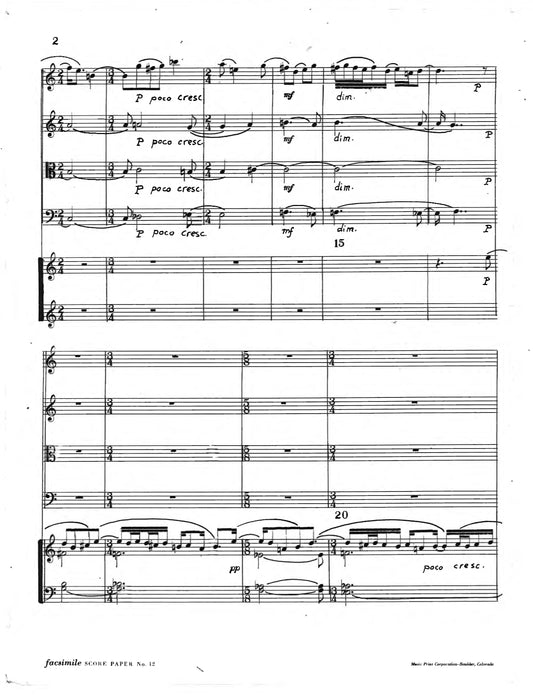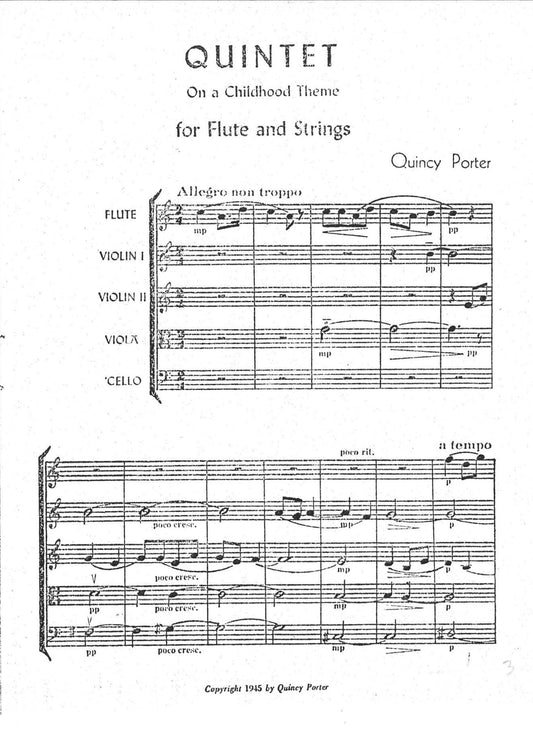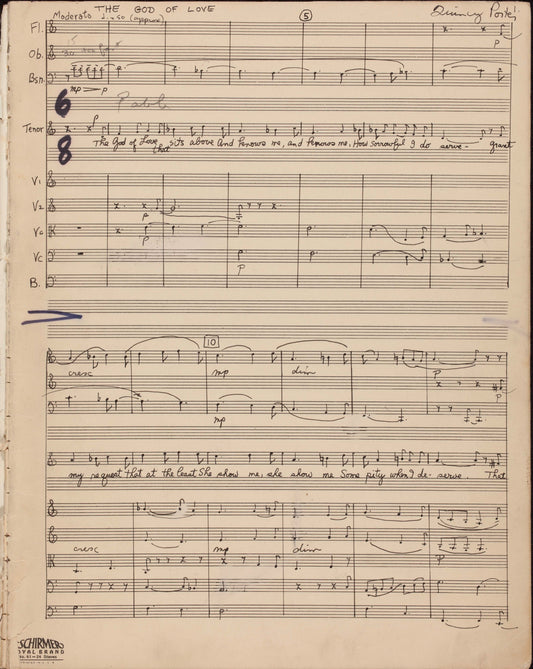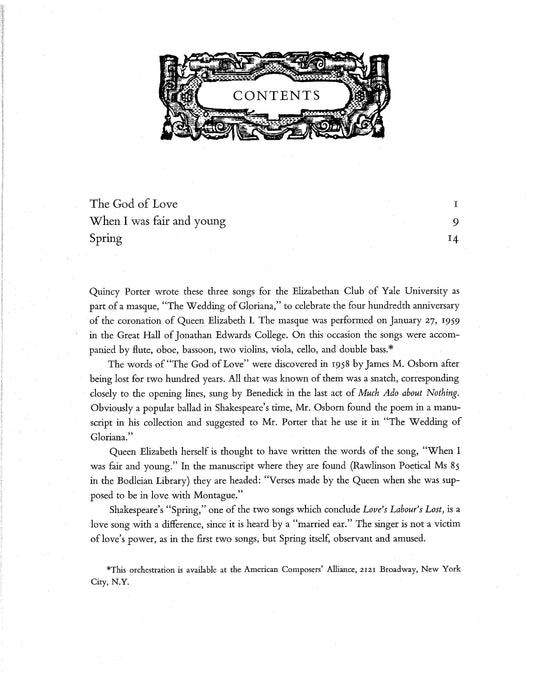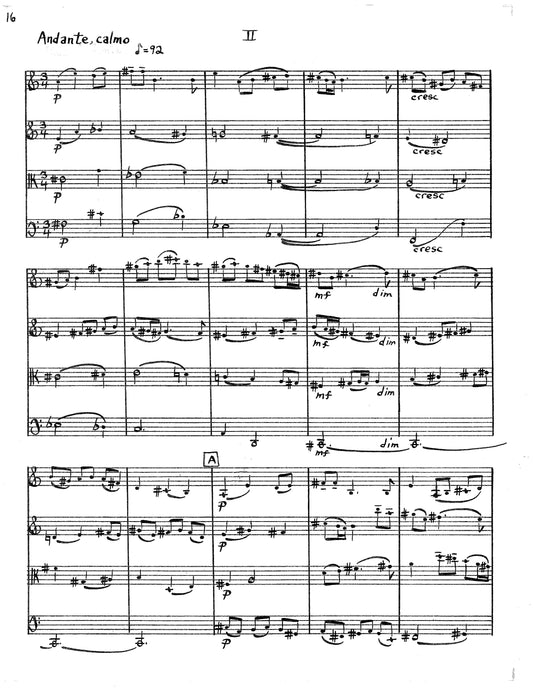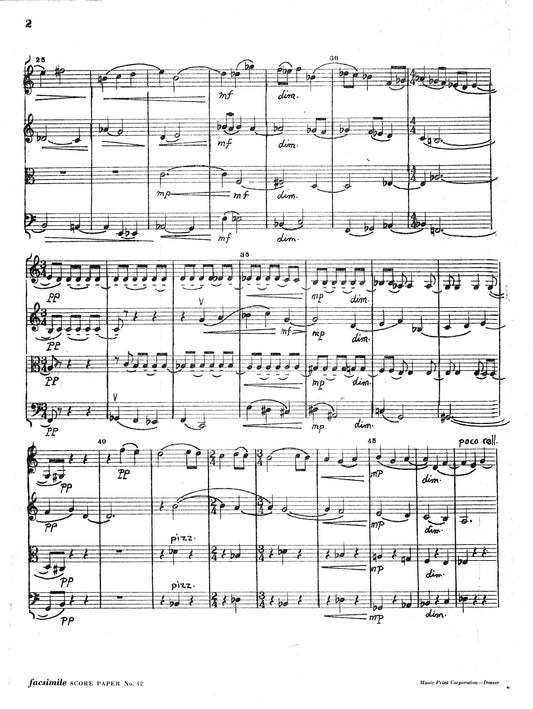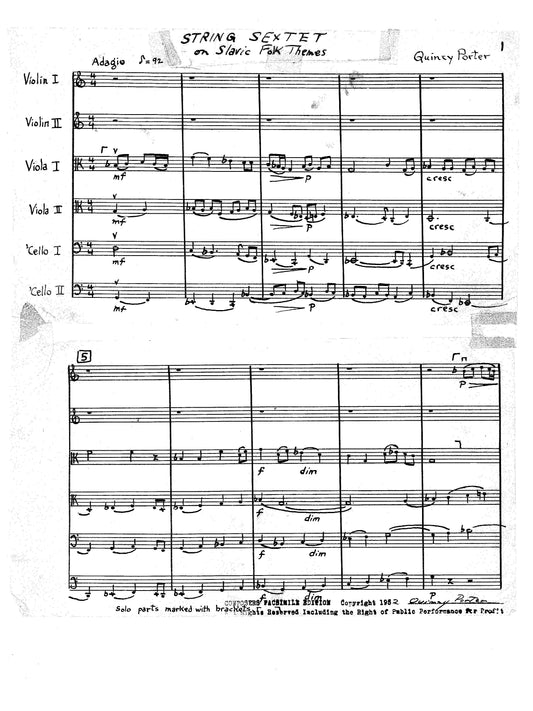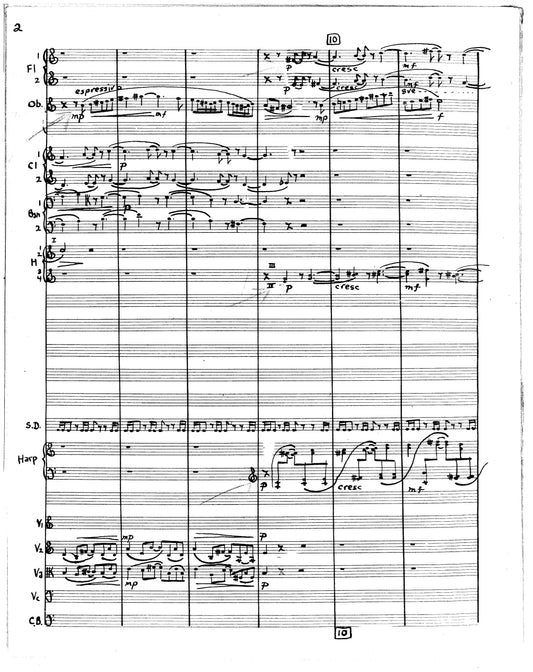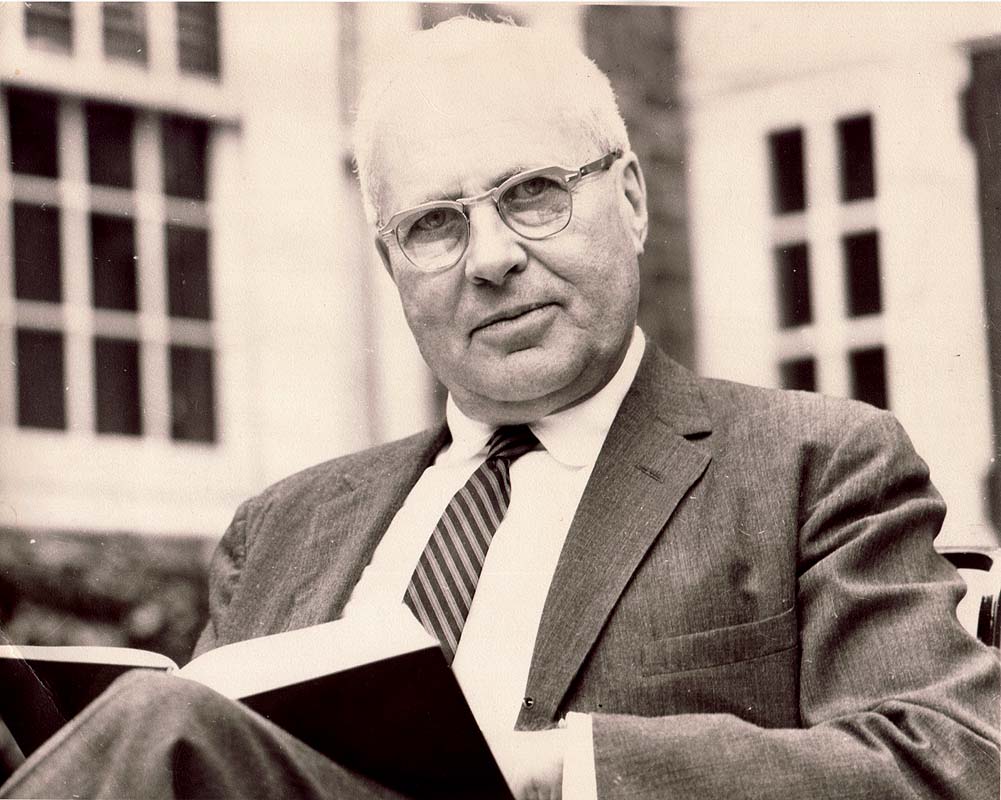
Porter, Quincy
1897 - 1965
Quincy Porter (1897-1966) is a descendant of early American pioneers with deep
New England roots. His father was a minister and a professor at the Yale
Divinity School, as was his grandfather also a professor at Yale. It is no
surprise that Quincy Porter would spend his undergraduate and most of his
professional life at Yale.
Porter graduated from Yale College in 1919 and Yale School of Music
in 1921, where he studied composition with Horatio Parker and David
Stanley Smith. While at Yale, he won two prizes in composition. He
continued to study in Paris with Vincent D'Indy, then returned to the United
States to study with Ernest Bloch, whom he eventually assisted at the
Cleveland Institute of Music. He later became head of the Theory
Department in Cleveland. In 1928 Porter returned to Paris for two years with
the support of a Guggenheim Fellowship. After returning to the States he
joined the music faculty at Vassar College where he became professor of
music and conductor of the orchestra. He left Vassar in 1938 to become the
Dean of the New England Conservatory, where he became its director in
1942. In 1946 he returned to Yale as full professor, where he remained for
the rest of his career.
Porter's musical style is mainly tonal, with high use of chromaticism.
He did not push the edge of new musical sounds, but he definitely has a
unique and fresh style of his own. While he was in Cleveland, Porter was the
violist of the Ribaupierre Quartet, which may be why he is one of the few
American composers who has an extensive cycle of string quartets. Other
important works are his Viola Concerto (1948), often hailed as his greatest
work, two symphonies 1934, 1962, and a Concerto Concertante, which won
the Pulitzer prize in 1954.
Along with Aaron Copland, Porter helped establish the American
Music Center, the Yaddo Artist Colony and Music Festival, and co-founded
the American Recording Society.
-
Quincy Porter
ANTONY & CLEOPATRA, INCIDENTAL MUSIC
1/picc.1.1.1, 2.1.1.0, 3 timp, perc, strings
Archival
-
-
-
Quincy Porter
CONCERTO FOR 2 PIANOS & ORCHESTRA "Concerto Concertante"
2pf & orch:2/pic-2-2-2,4-2-3-1,timp,str
$63.50 -
Quincy Porter
CONCERTO for harpsichord and orchestra
solo hpschd, orch: pic-2-2-2-bcl-2; 4-3-3-1; timp; perc; str
Archival
-
-
Quincy Porter
FANTASY FOR VIOLONCELLO AND SMALL ORCHESTRA
Chamber group with solo cello (2ob, 2hn, perc (tambourine), strings)
Archival
-
-
-
-
-
Quincy Porter
NEW ENGLAND EPISODES
orch:pic-2-2-ehn-2-2,4-2-3-1,str pic-2-2-eh-2-2; 4-2-3-1; perc; str
Archival
-
-
-
-
Quincy Porter
SONGS FOR THE ELIZABETHAN CLUB
voice(s), flute, oboe, bassoon, and 5-part strings (bass viol or cb)
$51.50 -
Quincy Porter
SONGS FOR THE ELIZABETHAN CLUB vocal score
voice(s), flute, oboe, bassoon, and 5-part strings (bass viol or cb)
$14.00 -
-
-
-
Quincy Porter
SYMPHONY No. 1
orch: picc-2-2-ehn-3-2-cbsn, 4.3.3.1, 5 timp, perc (4 players), harp, strings
Archival
-
-


